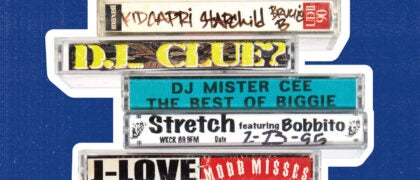Chapter 1
The Fire The story of my life starts with the fire. A lot of people know I burned down my family’s home when I was six years old, but are not aware of the magnitude of that moment—and all that began to unravel after it. That, I have never spoken of publicly, and rarely even to those closest to me.
You sometimes hear stories about people who have “lost it all” and rebuilt their lives, but what I learned at a young age is that sometimes shit is just lost forever, or the cracks are so bad the building blocks never quite Lego-fit the way they once did. We lost everything we had in that fire. Yes, material goods are just “things,” but the things we collect and value—especially when we’re young, or broke, or struggling—are extensions of who we are. Our visible, tangible losses, then, represent something deeper. In the fire, we lost ourselves.
No one ever blamed me. My mother offered enormous grace, knowing that I was just a child. But once you’ve burned down your home, everything else is small in comparison. That experience of total loss became the basis of all that I am. Even though my mother can’t see that now.
Born Cassandra “Cassie” Goldsmith, my mother changed her name to Trotter and added a Muslim name, Saaliha, when she married my father, Thomas Lynwood Trotter. At the time of the fire, my mother was almost thirty years old with two sons, having finally escaped the negligence of the projects for the safety and greener pastures of middle-class Mount Airy. She, my older half-brother, Keith, and I lived on the 1100 block of East Sharpnack Street, a row home in a city whose architecture tells nuanced stories of class, race, and legacy. Philly is known for its row houses—conjoined structures sharing a block-long black-tarred roof and gray pebbled-concrete sidewalk—but there exist subtle differences depending on the presence (or absence) of a front porch, stoop, or lawn. North of North Philly and bordered by Germantown, Chestnut Hill, Cheltenham, and Olney, Mount Airy row homes not only had porches, they shared long, lush grass plots in the front. It wasn’t exactly suburbia, but for us, coming from South Philly, the move to Mount Airy cued the theme song from
The Jeffersons.
Well, we’re moving on up . . . We rented the house from my great-aunt Vivian, “Aunt Viv” to me. Aunt Viv lived in South Philly but owned properties throughout the city. She was the younger sister of my maternal grandmother, Minnie, but so close in age to my mom that the two of them were like sisters themselves. Viv rented it to us, but for all intents and purposes, given all the sharing and overlap in our family, that house belonged to my mother. It wasn’t fancy, but it was the house we needed, neat and clean with some beautiful pieces inside. We had a hi-fi component set with a radio, an eight-track player, and a record player. My mother always had the hi-fi going, whether we were entertaining or home alone. The songs and sounds from that unbroken musical flow still stick with me. Our furniture was velvet, burgundy and gold, and the blue low carpeting went wall to wall on the house’s main floor, stopping at the vinyl-tiled kitchen. We had a finished basement with a movie projector, which is where my half-brother spent a lot of his time. I had a complete bedroom set with a huge closet; its sliding door took up an entire wall. I even had my own television in the room. Like I said: we had things, and the things reflected something back to us about who we were, who we aspired to be. Every item in that house—the headboard that matched the dresser in my bedroom, the elegant china cabinet in the dining room, the way the hi-fi component set lifted up on its mechanical gears—is etched in my memory, cataloged in a list of the lost. But I can’t remember any of it without a feeling of dread, knowing every item was doomed to vanish in smoke and flames.
When I was around four or five, I once took a glass of water and poured it slowly into the back of the television set in my room. It was one of those big-back TVs that had all these tubes and wires crisscrossing in and out of each other, all kinds of things going on in the back. The water trickled through the vents, but the set didn’t catch fire. It smoked. And I liked that smell, the scent of wires being burned out. It was mysterious and electric and intensely satisfying.
Pouring water into a television wasn’t an act of destruction, but of discovery. Left to my own devices I would conduct various small experiments at home, fueled by my intense curiosity and imagination and a never-ending desire to understand cause and consequence.
I also loved waging war with the plastic military figurines we called army men. My cousin Shawn, Aunt Viv’s youngest son but only two years older than me, would come over and, with each
BOOM! POW! explosion of a tank, bomb, or rifle shot in our imaginary battles, we would press the plastic faces of our soldiers into the flame from a lighter until they melted into camo-green mounds.
Smoke. Fire.
On this day, Shawn and I were warring with our army men on the third floor, in my mom’s room at the very front of the house. Eventually Shawn left, but the war continued as I played alone, the omnipotent deliverer of good or evil to these plastic soldiers, fire in hand via a red lighter with a black metal hood. It fit squarely in the center of my six-year-old palm. But it had been hours of play and the metal on the lighter’s top was too hot, burning my thumb. I jerked reactively, tossing the lighter away, but this was before the era of childproof flints, before the days when the removal of a finger meant that the flame would go out. On this day the fire only flickered on its short journey from my palm to the blue carpet at the base of my mom’s golden drapes, on a day before the days when fabrics were treated with flame retardant.
The lighter landed. Flames shot up.
I didn’t run. This seems ridiculous in retrospect, but instead of running, I tried to put the fire out. I knew that water put out fires, but I had no idea of the volume of water required. I very calmly stood up and pulled the green cap off the Niagara Spray Starch can in the corner of my mom’s bedroom. I walked to the hall bathroom next door and filled it up with water, returned to the scene, and threw that capful of water into the fire. The flames drank it in, only seeming to get bigger. Seeing that my best efforts had failed and were of no assistance whatsoever, I set the cap down, turned, and calmly walked out the room and descended the stairs.
As I reached the bottom step, Keith and James—the latter my mom’s boyfriend at the time—came running up from the basement.
“I smell smoke, what’s going on?” James yelled out at me.
“There’s a fire upstairs,” I said, just on some chill shit. We all looked up—the fire had already engulfed the whole landing area. James called the fire department and we all calmly walked out of the house. Once the fire trucks pulled up, James and I jumped in his orange Thunderbird to go pick up my mom, who was at a doctor’s visit, leaving Keith behind. I could see the black smoke rising into the sky for blocks and blocks as we drove away, a plume above the lines of low-storied row houses. The image would come back to my mind years later when, in an unprecedented move, the city’s police department dropped a bomb on the MOVE communal row home, starting a blaze that engulfed a subsequent sixty-one additional properties in a horrible conflagration that could be seen for miles around.
It wasn’t until we returned to the scene with my mom that the full force of the event struck me. As we turned down our street, a vision of chaos and destruction unfolded. It blew my young mind to see our house at the center of this world of police cars and firetrucks, smoke and smolder, red and blue and white lights flashing. As I took in the intensity of the scene in front of me, the gravity of the situation set in on me.
What the f*** did you do?
Copyright © 2023 by Tariq Trotter. All rights reserved. No part of this excerpt may be reproduced or reprinted without permission in writing from the publisher.







